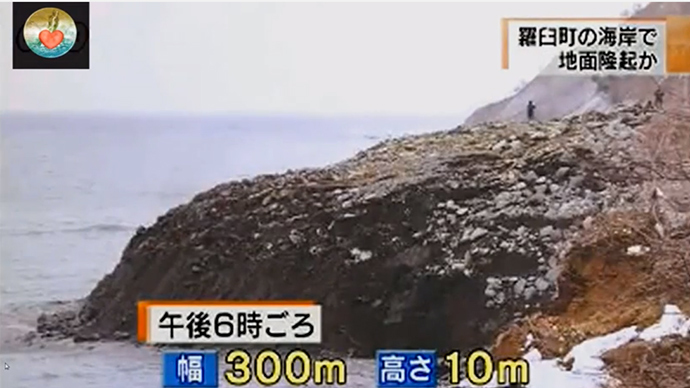Japan now bigger after landslide pushes territory into sea off eastern Hokkaido

The mysterious rise of a landmass from the sea along the coast of Hokkaido, Japan, was caused by a local landslide, an on-site study has found. The mass measures up to 300 meters long, 40 meters wide and rises about 10 meters above sea level.
A local woman who was harvesting seaweed along the shoreline
Friday morning noticed the area was more elevated than usual. By
the time she finished harvesting, the area had risen further.
The president of the Rausu Fisheries Cooperative Association,
Katsuhiro Tanaka, who saw the expanded coastline the day it was
discovered, told Asahi Shimbun that "local residents said
they didn't hear any sounds and there were no tremors.”
Dutchsinse.com, reporting on earth changes news, weather
modification, earthquakes and volcanoes, said on Saturday that
"major global earthquake activity is taking place, and
serious crustal movement is obviously underway in the region
around North Japan."

Hokkaido researchers discovered that part of a hill facing the sea had collapsed, the Asahi Shimbun reported. A road along the hill located about 150 meters from the coastline has tumbled in a section stretching up to 30 meters.
According to Shintaro Yamasaki, assistant professor of
engineering technology at the Kitami Institute of Technology in
Hokkaido, a landslide occurred on the hill toward the sea. He
said that the landslide pushed up the seabed, so the sea bottom
eventually appeared above the surface.
Yamasaki told the newspaper that the collapse occurred because
“melted snow penetrated into the ground and made it easy for
the ground to subside.”
Hiroshi Fukuoka, a professor at Niigata University Research Institute for Natural Hazards, added: “The ground has become fragile on some of the coasts that have become cliffs. That is because of exposure to waves.”












